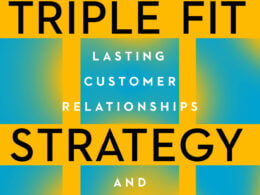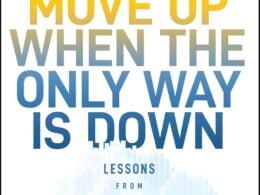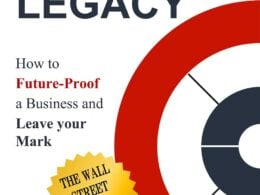Excerpted from “The Minimalist Entrepreneur: How Great Founders Do More With Less” by Sahil Lavingia, in agreement with Portfolio, an imprint of Penguin Publishing Group, a division of Penguin Random House LLC. Copyright © Sahil Lavingia, 2021.
Whenever I have to decide what to do next, I ask myself the question Gary Keller poses in “The One Thing”: “What’s the one thing you can do such that by doing it everything else will be easier or unnecessary?”
That’s why in this book we’ve focused on community before process, process before product, sales before marketing,
and marketing before growth. When it comes to the people in your company, the answer to Keller’s question is to focus on culture before hiring. Before you’re ready to hire anyone, you first need to make a company people want to work for. That begins with setting your values, preferably as early as possible, because values are the foundation of the culture you will build together with your employees.
I used to think that communicating company values was kind of dumb, to be honest. Be nice, work hard, show up on
time— isn’t it obvious? Then I started Gumroad and realized that if you don’t constantly remind everyone— including
yourself— what you do, how you do it, and why you do it that way, you will veer off course. And then you’ll have to make
corrections, usually at the most inopportune time.
For me this happened in the fall of 2014, when I first started having conversations with VCs about the next round of funding for Gumroad. When I realized that it wasn’t going to be easy, if at all possible, to raise our Series B round of funding, I had to realign several team members around a very different kind of culture— one focused on building a profitable, sustainable business rather than a unicorn. We didn’t shift our priorities— we were and still are creators first— but our new focus required me to have conversations around the career trajectory some of our employees expected. And let me tell you, it’s a lot more difficult, emotional, and expensive to fix your culture than your code.
Humans are not computers. We are all unpredictable, emotional creatures. Each person you hire makes the matrix of interactions within your organization more complex. You will make mistakes, but your company values will give you a plan of attack for how to get back on track.
Define your values early and often
Values are not generic two-word commandments that companies use to state the obvious. Quite the opposite: They’re
for stating the non-obvious, in non-obvious ways. They codify what you believe, putting it in a place where everyone can
see— and everyone can suggest changes.
Values are oral tradition. They tell employees a story of how to behave in both everyday and extreme situations. And they’re more efficient mediums of information than manuals and handbooks. That’s because good values stick in the
brain; they’re efficient and memorable.
Nordstrom, for example, is famed for its customer service. In one iconic story, a customer brings a set of tires to the
store to return even though Nordstrom sells clothes, not tires. The store accepts the tires anyway and fully refunds the customer. In another tale, a clerk who can’t find the right pair of shoes at any nearby Nordstrom store recommends a
competitor, Macy’s, and covers shipping for the customer. These stories communicate more about the kind of service Nordstrom— and its customers— expect than a thousand-page manual on “how to be a good sales clerk” ever could.
You could start working there tomorrow and already have a good sense of what kind of standards you would need to uphold to be a good “fit.”
That’s because values aren’t just for the people within the company. They tell your customers and the people who may consider working for you that you exist, and that they might be a great fit. More important, they tell everyone else that your company isn’t right for them, saving you, and them, precious time.
That absolute clarity is particularly important for minimalist entrepreneurs because we often attract people for whom this may be a first job. Defining and communicating your company’s values early sets expectations for how work
is done and how disagreements are handled within the organization. They’re not just a vehicle for you to push your will on your team. They help hold your team together and provide a way for your team to hold you accountable.
Values supersede you, and values allow you to scale. After all, one of the reasons you started a business is to control
your environment: when you work, how you work, where you work, who you work with, who you work for, and more. Values make sure that everyone is aligned on what that looks like. This is especially important when it comes to making difficult decisions.
Natalie Nagale, cofounder and CEO of Wildbit, knows this firsthand. She and her husband, Chris, founded Wildbit in
2000, and in 2012 the growth of Beanstalk, the workflow software that was one of their core products, plateaued.
“That was an important time for us,” she says, “because we were forced to ask why we were building and what we wanted to grow.” One of Wildbit’s principles is that businesses are product agnostic, which helped them make the decision to shift Beanstalk to maintenance and support mode. When they finally stopped trying “to put out Beanstalk fires,” they
were able to focus on intentionally growing Postmark, an email delivery service that was their other core product.
In the years since, not being defined by one project or product has given Wildbit more freedom to “celebrate every opportunity to learn,” which is one of their core values. In practice, this means that if something, even a long-term project, stops being interesting or challenging, they move on.
Making decisions that affect the lives of your team and your customers is not something to be taken lightly. But if you’ve decided on your values and have developed a culture around them, it will be a lot easier. A lot of founders think they can wait to write down their values, that they’ll appear to them just in time and that culture will develop naturally. That’s true, but be forewarned that it may not be a culture you want for you, your team, or your customers.
You can start small and grow from there. But it is important to start having these conversations— even if it’s just with yourself. You can communicate your values through pithy statements, or you can draw them out into long stories, but you should start.
“The Minimalist Entrepreneur: How Great Founders Do More With Less” is available now and can be purchased via StartupNation.com.






